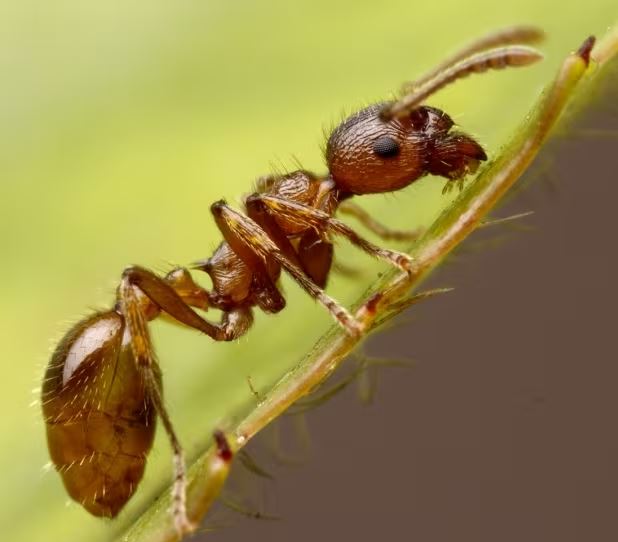European fire ants are reddish-brown, 4-5mm long, have two waist segments in the middle of the body, two spines pointing backwards, and a stinger that can deliver a painful sting.
There are many species of ants in British Columbia, including others that are red and sting. An expert should confirm the identification of European fire ants.
To help avoid the spread of this invasive species, please report any suspected infestations to the City at
eng@cnv.org or call 604-987-7155 and/or contact the
Invasive Species Council of Metro Vancouver.

European fire ants are often spread through human activities. They nest in garden and landscaping materials, including potted plants, soil, compost, tree balls and mulch. Entire nests can be inadvertently transplanted along with these materials.
Prevention is the most economical and effective way to reduce the spread of European fire ants over the long term.
Tips to help avoid the spread of European fire ants:
- Do not move soil, mulch, or plants from infested areas.
- Check for any ants being carried in garden products (soil, mulch, plants etc.) and return items if found.
- Reduce watering and avoid/remove anything from the area that traps heat and moisture.
- Dispose of yard waste and soil appropriately.